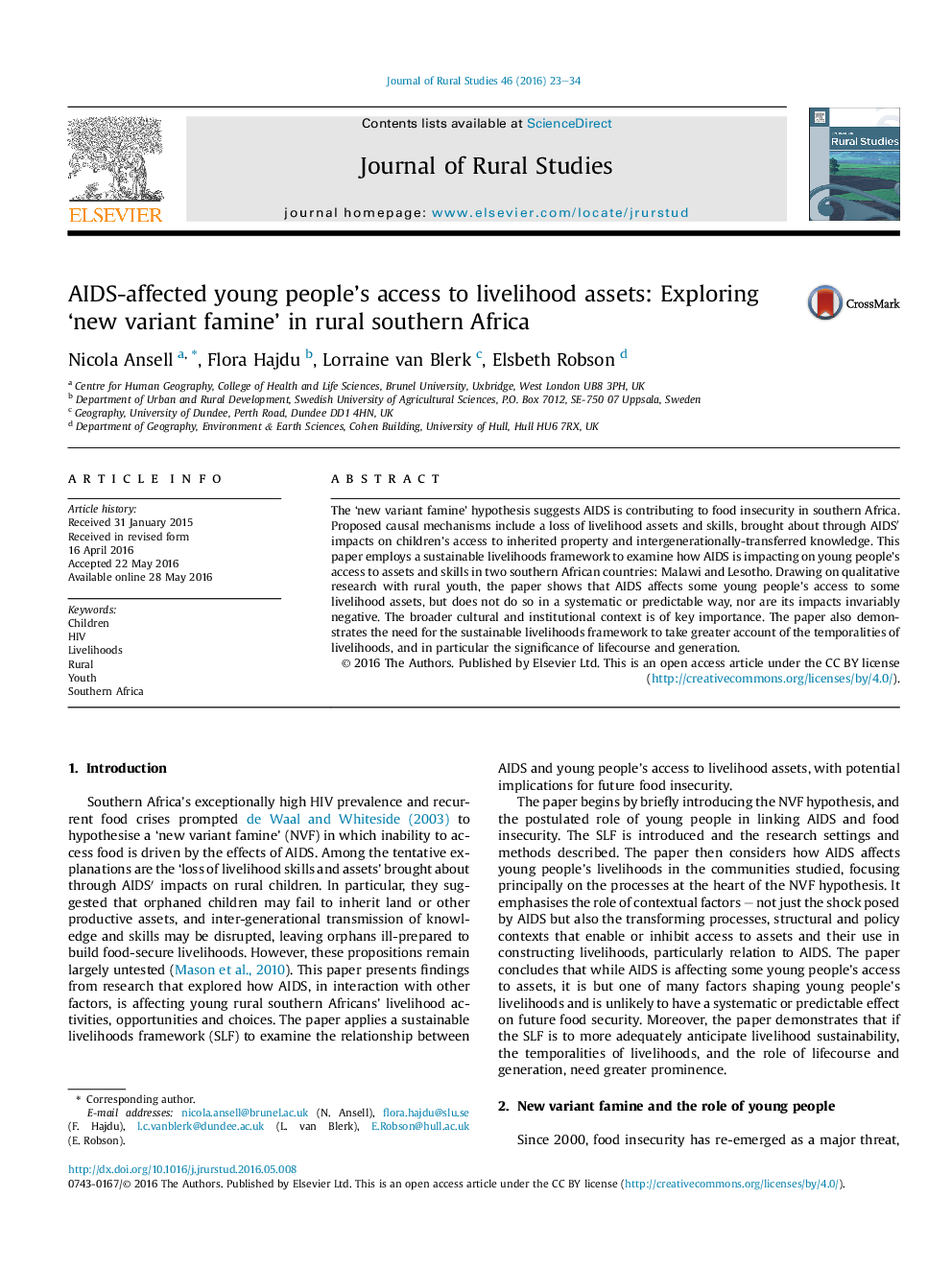| Article ID | Journal | Published Year | Pages | File Type |
|---|---|---|---|---|
| 6545378 | Journal of Rural Studies | 2016 | 12 Pages |
Abstract
The 'new variant famine' hypothesis suggests AIDS is contributing to food insecurity in southern Africa. Proposed causal mechanisms include a loss of livelihood assets and skills, brought about through AIDSâ² impacts on children's access to inherited property and intergenerationally-transferred knowledge. This paper employs a sustainable livelihoods framework to examine how AIDS is impacting on young people's access to assets and skills in two southern African countries: Malawi and Lesotho. Drawing on qualitative research with rural youth, the paper shows that AIDS affects some young people's access to some livelihood assets, but does not do so in a systematic or predictable way, nor are its impacts invariably negative. The broader cultural and institutional context is of key importance. The paper also demonstrates the need for the sustainable livelihoods framework to take greater account of the temporalities of livelihoods, and in particular the significance of lifecourse and generation.
Related Topics
Life Sciences
Agricultural and Biological Sciences
Forestry
Authors
Nicola Ansell, Flora Hajdu, Lorraine van Blerk, Elsbeth Robson,
